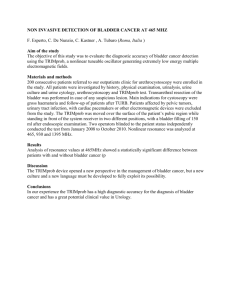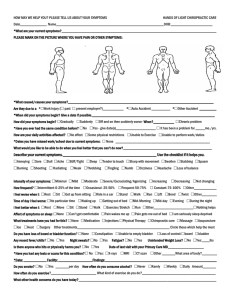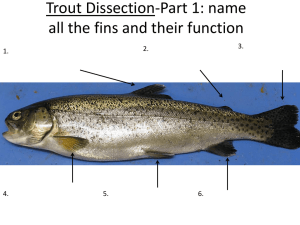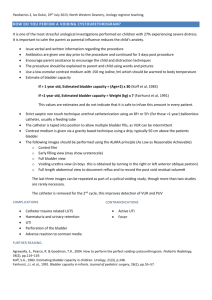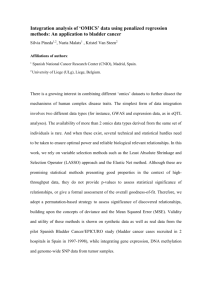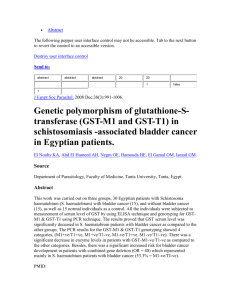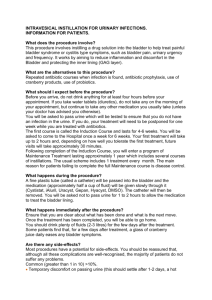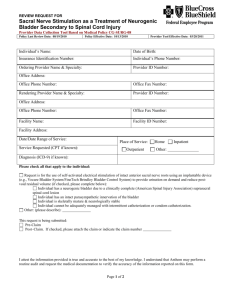Mechanotransduction in the bladder
advertisement
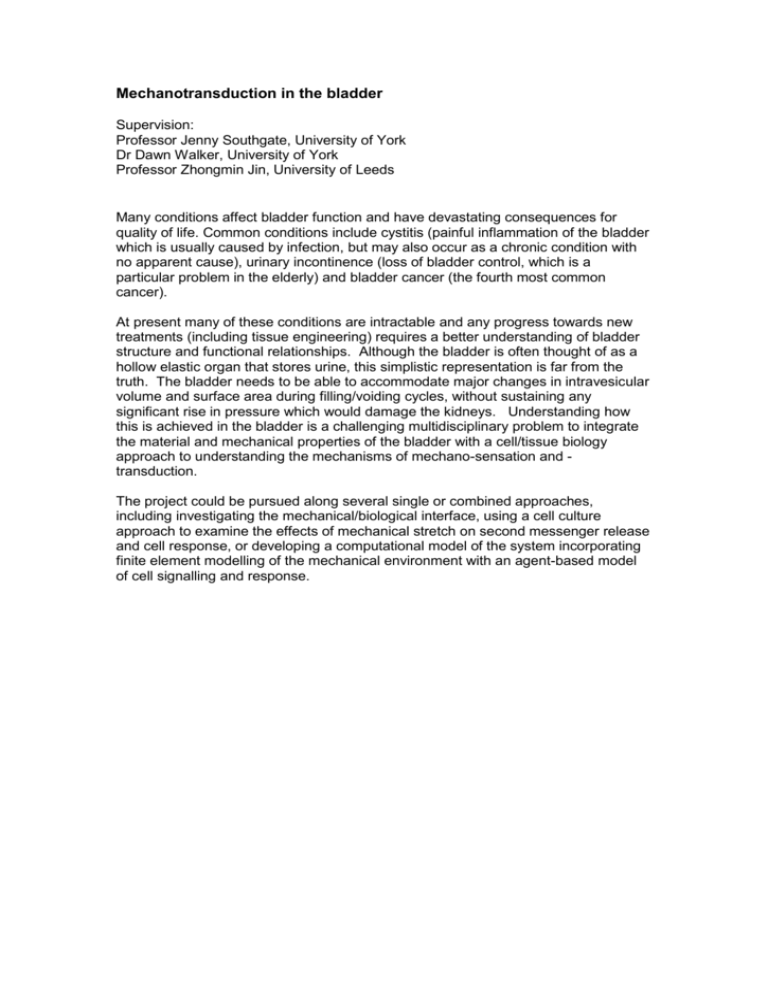
Mechanotransduction in the bladder Supervision: Professor Jenny Southgate, University of York Dr Dawn Walker, University of York Professor Zhongmin Jin, University of Leeds Many conditions affect bladder function and have devastating consequences for quality of life. Common conditions include cystitis (painful inflammation of the bladder which is usually caused by infection, but may also occur as a chronic condition with no apparent cause), urinary incontinence (loss of bladder control, which is a particular problem in the elderly) and bladder cancer (the fourth most common cancer). At present many of these conditions are intractable and any progress towards new treatments (including tissue engineering) requires a better understanding of bladder structure and functional relationships. Although the bladder is often thought of as a hollow elastic organ that stores urine, this simplistic representation is far from the truth. The bladder needs to be able to accommodate major changes in intravesicular volume and surface area during filling/voiding cycles, without sustaining any significant rise in pressure which would damage the kidneys. Understanding how this is achieved in the bladder is a challenging multidisciplinary problem to integrate the material and mechanical properties of the bladder with a cell/tissue biology approach to understanding the mechanisms of mechano-sensation and transduction. The project could be pursued along several single or combined approaches, including investigating the mechanical/biological interface, using a cell culture approach to examine the effects of mechanical stretch on second messenger release and cell response, or developing a computational model of the system incorporating finite element modelling of the mechanical environment with an agent-based model of cell signalling and response.

